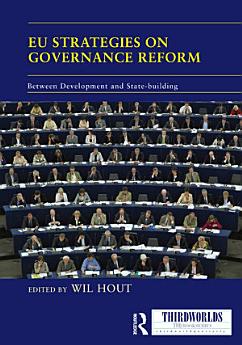EU Strategies on Governance Reform: Between Development and State-building
About this ebook
The contributions to the book argue that the EU’s position on governance reform, particularly since the adoption of the European Consensus on Development in 2005, has had distinctly neoliberal overtones. The EU’s governance-related strategies have been instrumental to deepening market-based reform in aid-receiving countries. Policies on state-building adopted by the EU reflect mainly the interests of and ideas embraced by the EU and its member states. To an important extent, the rhetoric accompanying EU policies does not match with the political and social dynamics inherent in governance structures on the ground in many of its aid-recipient partner countries.
This book was published as a special issue of Third World Quarterly.
About the author
Wil Hout is Professor of Governance and International Political Economy at the International Institute of Social Studies, Erasmus University Rotterdam.







